YEN BAI_ A cooperative in Yen Bai has nearly 1,000 hectares of organic cinnamon with more than 800 participating households, exporting products to high-end markets such as the US, Japan, Korea, France...
Editor's note: Not only bringing many benefits to the environment, human health, economic value..., organic agriculture is a sustainable solution for agricultural products to be exported to large, high-value markets. In that trend, Yen Bai is doing well in "linking 4 houses" to build an organic cinnamon material area.
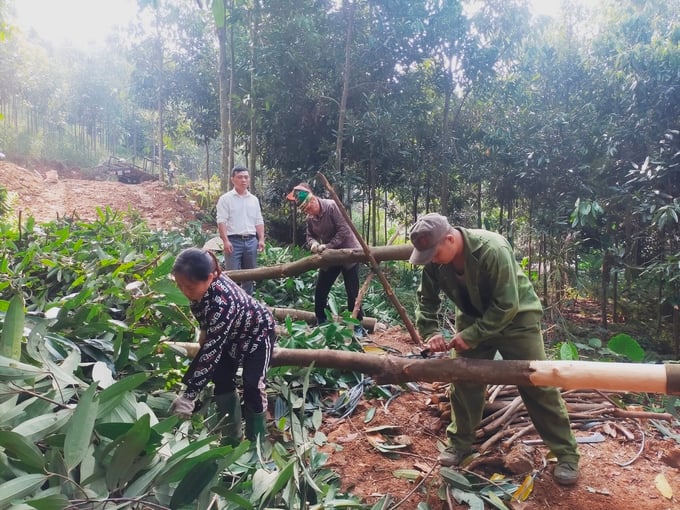
People in Dao Thinh commune, Tran Yen district harvest cinnamon bark. Photo: Thanh Tien.
Get rewarded for growing organic cinnamon
Mr. Pham Van Hieu's family in Dao Thinh commune (Tran Yen district, Yen Bai province) has been attached to cinnamon trees for more than 20 years. Previously, his family grew cinnamon from seeds, fertilized with inorganic fertilizers, and used chemicals to prevent pests and diseases. Since 2017, Mr. Hieu's family and other households in the village have been instructed on organic cinnamon growing techniques by technical staff of the Vietnam Cinnamon Cooperative and agricultural extension officers.
Mr. Hieu shared that in the past, his family and other households in the village often sprayed weed killers to reduce labor costs. Currently, when growing organic cinnamon, people take advantage of agricultural by-products combined with microorganisms as fertilizer, and use vegetation to create moisture and fertility for the soil.
Weeding on cinnamon hills only uses generators or manual methods, absolutely no herbicide spraying. Doing so is good for the environment, protects water sources, creates humidity and increases organic nutrients for the soil, does not affect the health of families and communities, and improves product quality. In particular, products are purchased by companies at prices 6 - 10% higher than those of households without organic certification.
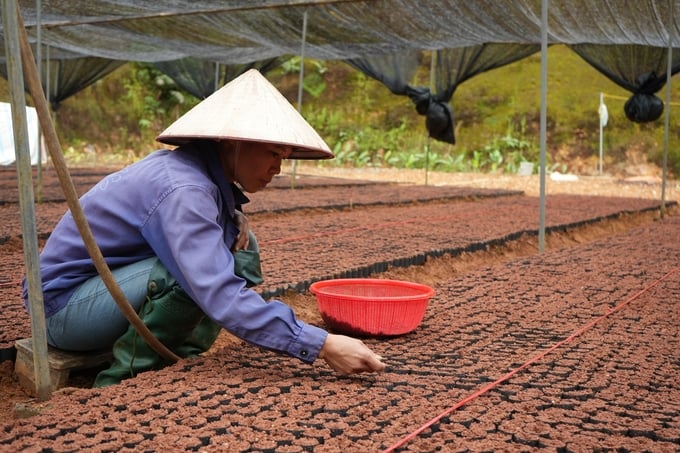
Choosing quality cinnamon seeds with clear origin is an important step to have quality seedlings. Photo: Thanh Tien.
Dao Thinh commune currently has nearly 900 hectares of cinnamon, mainly planted in villages with a lot of hilly and forest land. About 10 years ago, people mainly planted cinnamon spontaneously, taking care of the trees out of habit without understanding the techniques of digging holes, tree spacing, fertilizing time, pruning leaves... Not to mention, according to the old method, cinnamon was planted from seeds, selected varieties based on experience, chemical fertilizers were applied in an estimated way and pesticides were used to prevent pests... so it was difficult to meet the demanding market. There were times when the product did not have a good price, the output was unstable, many people were no longer interested in cinnamon trees.
Mr. Pham Van Tien - Chairman of the Farmers' Association of Dao Thinh Commune said that in the past, farmers in the commune did not understand what organic farming was, they only cared about productivity, output and shortening harvest time. Through training sessions and technical guidance from functional agencies and businesses, people gradually understood more about organic cinnamon production and the benefits that this method brings.
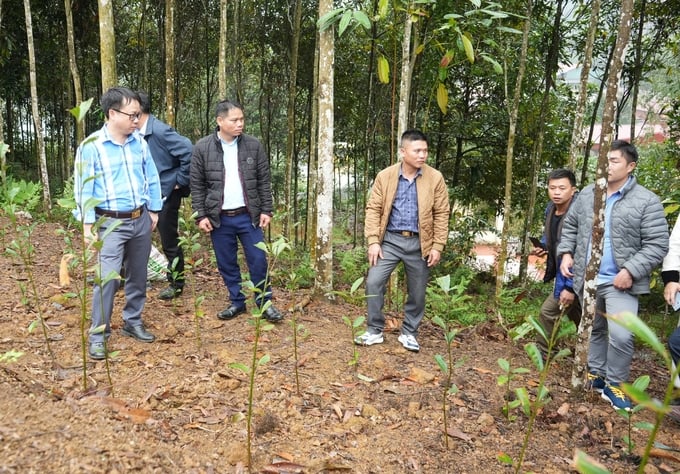
People in Dao Thinh commune are regularly trained and instructed in organic cinnamon growing techniques. Photo: Thanh Tien.
In recent years, the movement of growing organic cinnamon has been actively responded to by the people of Dao Thinh commune. Up to now, the whole commune has over 600 households that have applied organic cinnamon production. The reason why people actively participate is because this method brings many benefits. The climate and soil conditions are suitable, so even without chemical fertilizers, cinnamon trees still grow well. Households only take advantage of manure and composted agricultural by-products to supplement cinnamon trees. Not using chemical fertilizers, pesticides, and herbicides of chemical origin helps protect the ecological environment and reduce investment costs.
In addition, the products produced are fully purchased by the Vietnam Cinnamon Cooperative at a price 6-10% higher. At the end of the year, households selling products to the factory will also receive a bonus of 1.5 million VND/ton of qualified products. In particular, households in the organic cinnamon production area will also receive financial support to build public welfare projects such as roads and support for poor households.
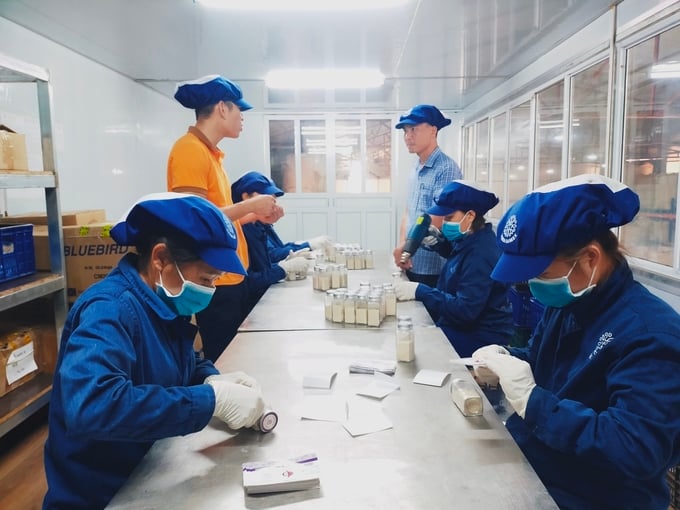
Workers at the processing factory of the Vietnam Cinnamon and Star Anise Cooperative (Dao Thinh commune) pack products for export. Photo: Thanh Tien.
The organic cinnamon growing area of Dao Thinh commune is cultivated without the use of toxic chemicals, focusing on balancing the natural ecosystem. According to this organic production model, the value of cinnamon products of the people in the commune is higher than that of conventional cinnamon products, thereby opening up great opportunities in trade promotion, boosting exports, and increasing income for the people.
In addition, to solve the problems in production of people when implementing organic cinnamon planting, Dao Thinh commune has coordinated with functional departments and enterprises to open training courses, provide technical guidance; monitor the planting, care and harvesting processes of households in the raw material area, regularly take samples for testing, promptly detect quality indicators that do not meet requirements.
More than 3,000 hectares of cinnamon have international organic certification
Vietnam Cinnamon Cooperative invested in building a cinnamon processing factory in Dao Thinh commune in 2017 with a total capital of more than 80 billion VND. With modern production lines, the factory specializes in producing and processing cinnamon products with an output of 1,500 - 2,000 tons/year. Currently, the Cooperative has been making a big change in developing cinnamon trees towards organic standard goods, forming a value chain, opening up export doors, bringing high economic efficiency to the people.
To form a closed production chain, the Cooperative has coordinated with local authorities to mobilize and guide households to change traditional cinnamon production practices to organic methods. Up to now, the Cooperative has signed a commitment to produce and consume products with more than 600 households in the commune and neighboring areas, with an area of over 600 hectares certified as organic.
In addition, the cooperative has built an organic cinnamon production line according to international standards, from raw materials to high-tech processing, producing products for export to high-end markets such as the US, Japan, Korea, France...
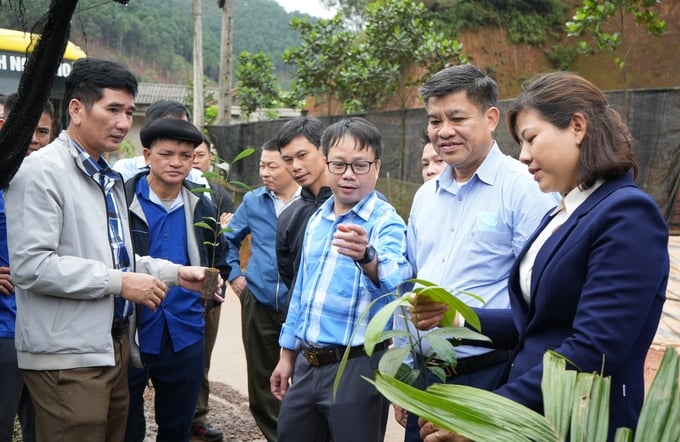
The organic cinnamon production movement is increasingly being replicated in communes in the cinnamon development planning area in Tran Yen district. Photo: Thanh Tien.
Mr. Nguyen Ba Mao - representative of Vietnam Cinnamon Cooperative (in Yen Bai) said: In the past, the enterprise has coordinated with local authorities to organize training and guide farmers to plant and care for cinnamon trees according to organic standards (international Organic certification). Every year, the Cooperative establishes teams and groups to conduct cross-inspection and control of raw material areas signed for consumption with the Cooperative. Assign staff to provide and support items in the process of selecting seeds, caring for, harvesting and signing contracts to consume products for farmers.
Up to now, the cooperative has nearly 1,000 hectares of organic cinnamon with more than 800 farming households in Dao Thinh commune and neighboring communes such as Tan Dong, Viet Thanh, and Hoa Cuong participating.
In addition, the cooperative also creates regular jobs for over 100 workers with an income of 7-9 million VND/month; average annual revenue is over 30 billion VND, purchasing cinnamon products for Dao Thinh commune and neighboring communes. Ensuring the organic cinnamon production process is truly a good opportunity for the factory to continue expanding the export market for its products.
The organic cinnamon production movement has been responded to by thousands of households in Tran Yen district. Currently, the whole district has over 20,000 hectares of cinnamon, the area of cinnamon specialized in organic cultivation is over 12,000 hectares (accounting for 60%), of which more than 3,000 hectares have been granted international Oganic certification.
In the coming time, the district government will continue to create favorable conditions for businesses and cooperatives to register to participate in the implementation of the policy to support the development of organic cinnamon linked to the value chain. Encourage businesses to invest in production, deep processing and consumption of cinnamon products in a sustainable manner, improving the quality and value of products.
Source




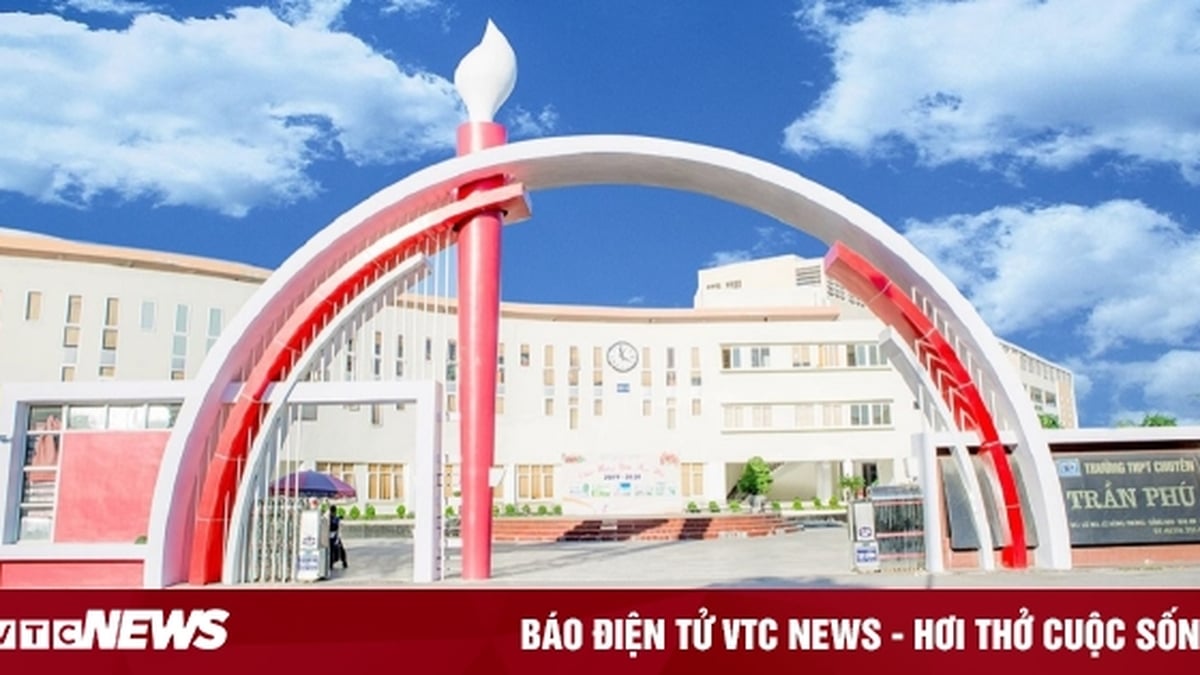
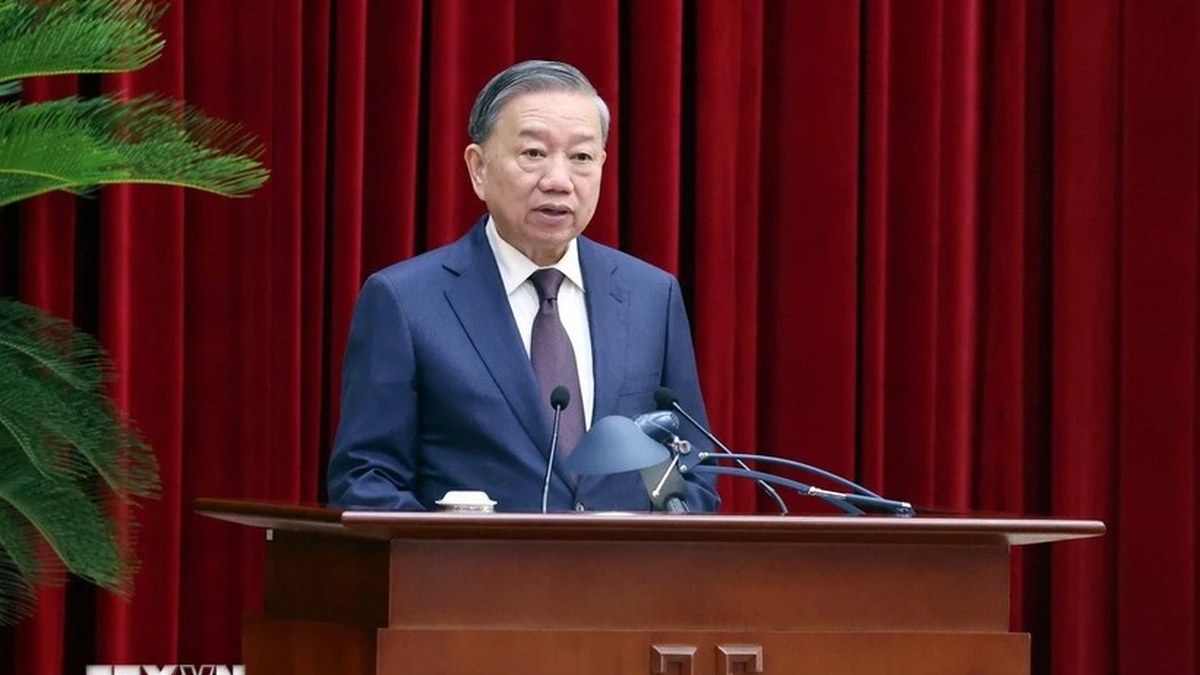

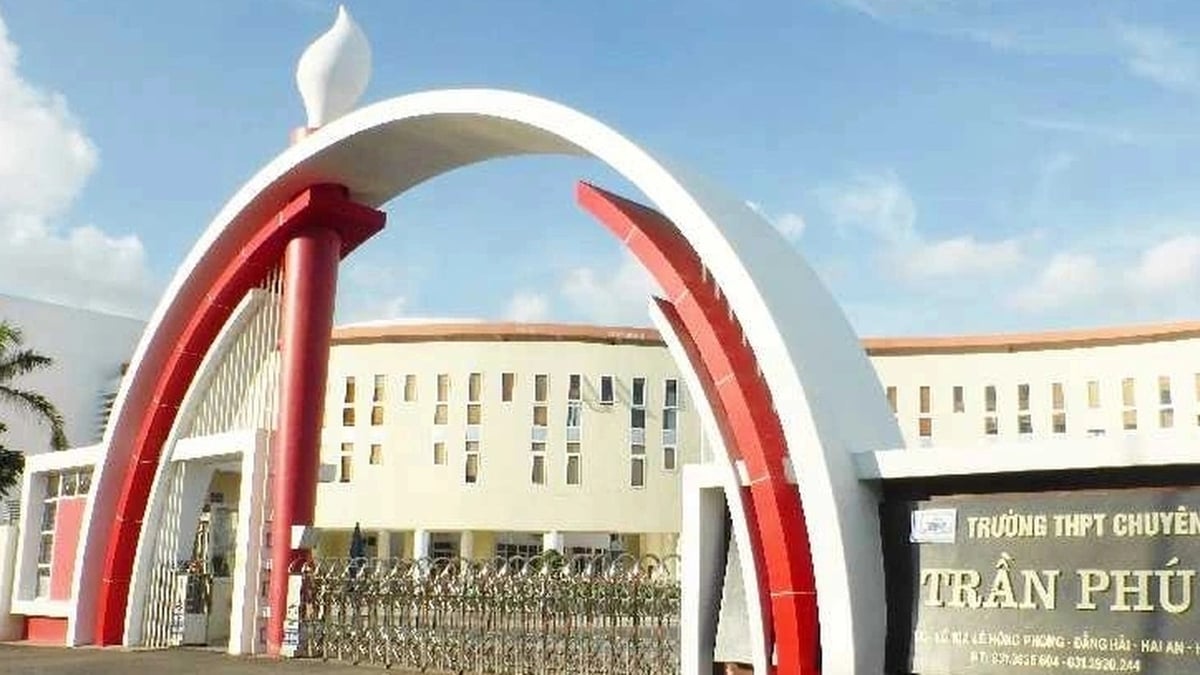
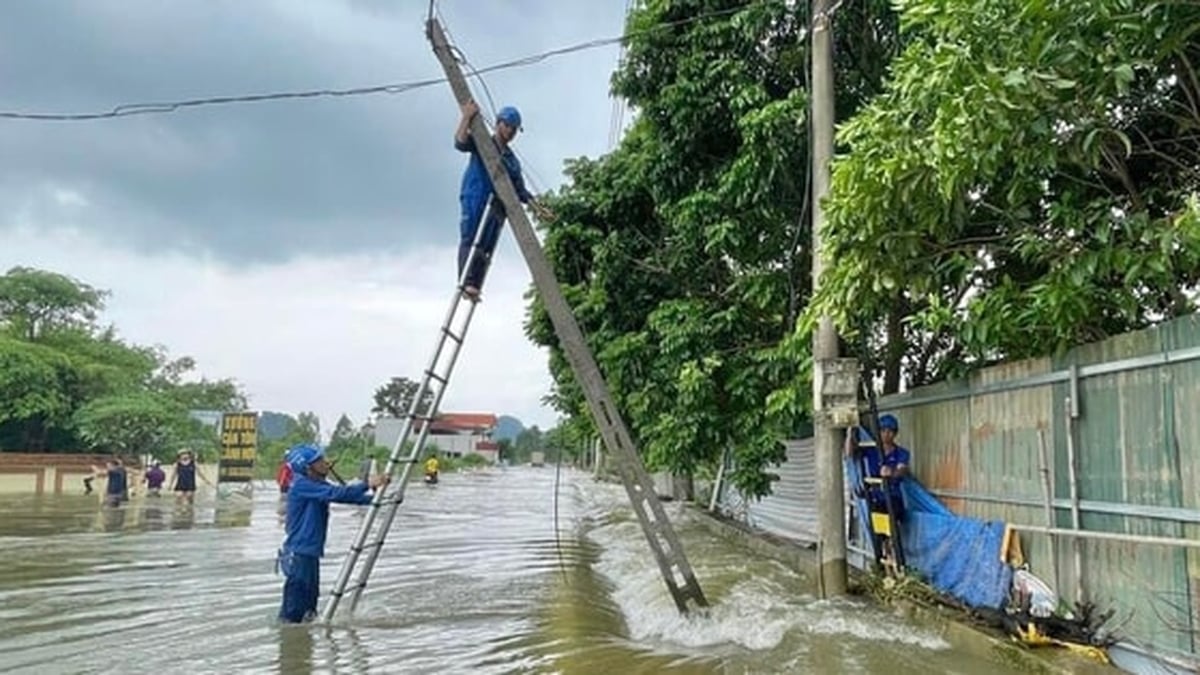
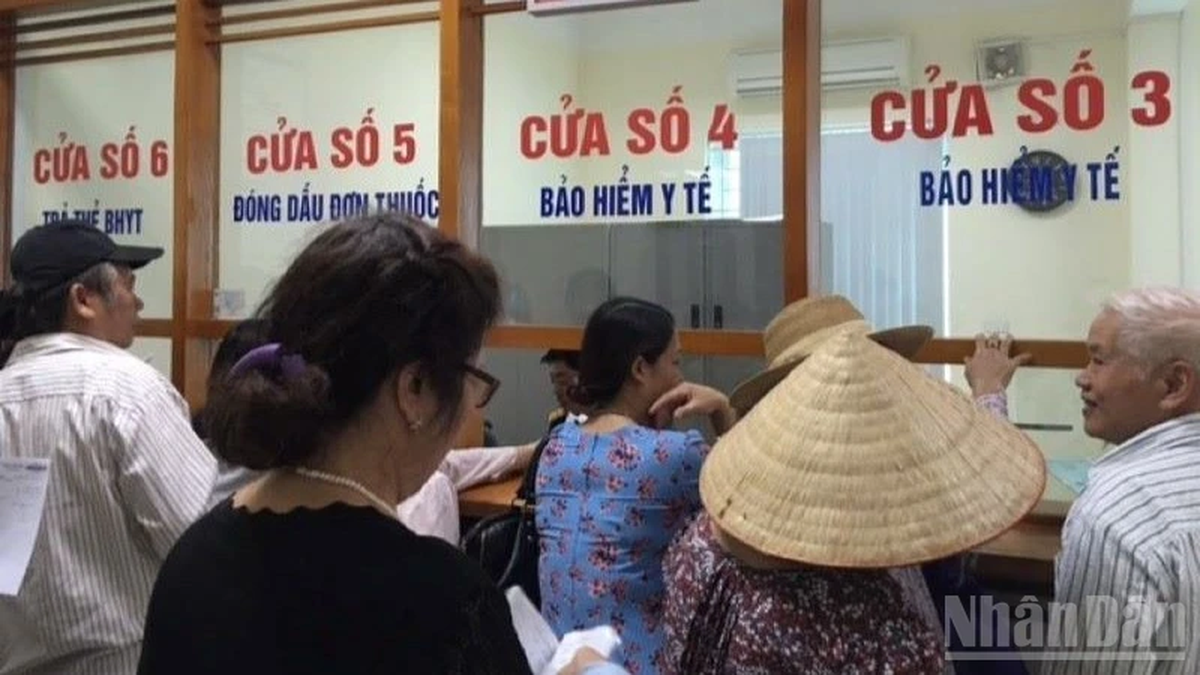
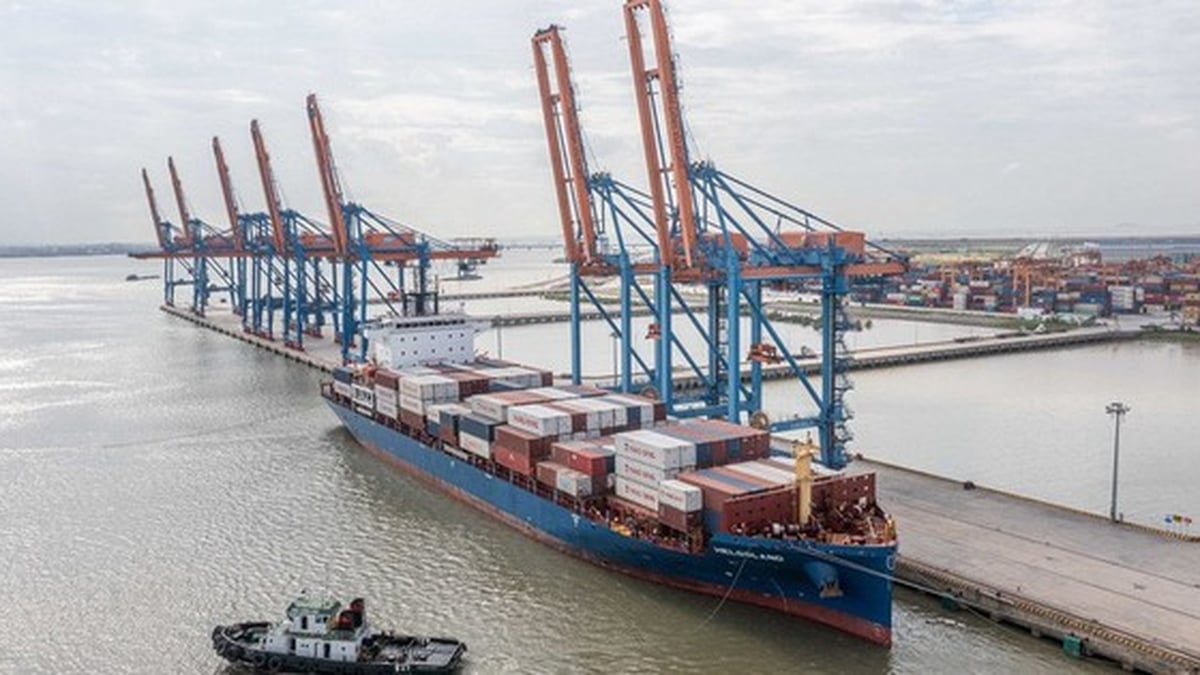
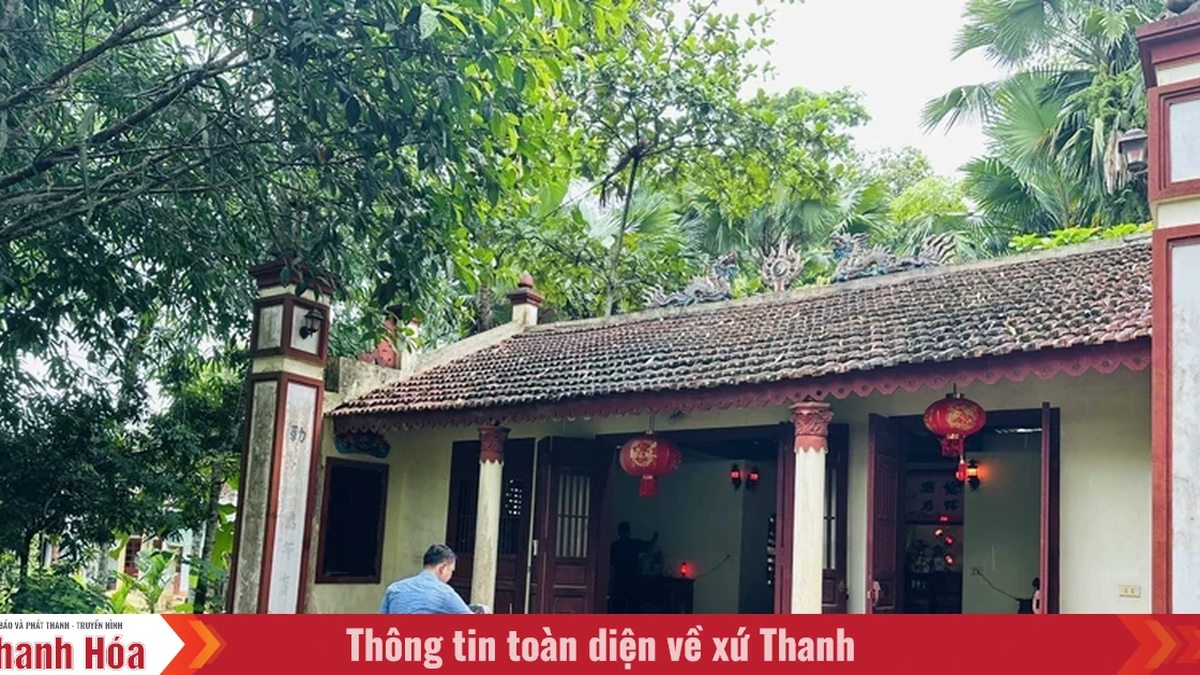






















































































Comment (0)